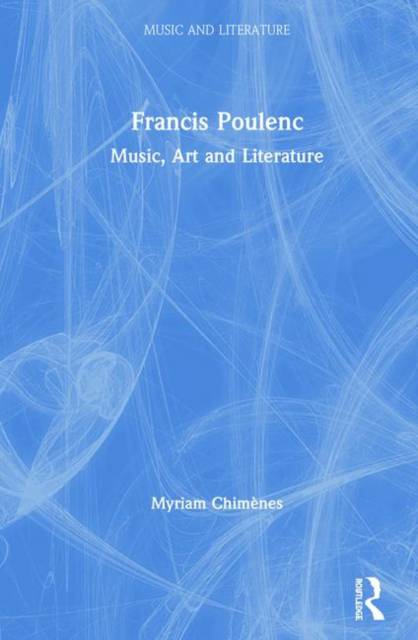
Door een staking bij bpost kan je online bestelling op dit moment iets langer onderweg zijn dan voorzien. Dringend iets nodig? Onze winkels ontvangen jou met open armen!
- Afhalen na 1 uur in een winkel met voorraad
- Gratis thuislevering in België vanaf € 30
- Ruim aanbod met 7 miljoen producten
Door een staking bij bpost kan je online bestelling op dit moment iets langer onderweg zijn dan voorzien. Dringend iets nodig? Onze winkels ontvangen jou met open armen!
- Afhalen na 1 uur in een winkel met voorraad
- Gratis thuislevering in België vanaf € 30
- Ruim aanbod met 7 miljoen producten
Zoeken
€ 195,95
+ 391 punten
Omschrijving
This collection of essays provides vivid new insights into Poulenc's world, his particular rapport with painters, writers and fellow musicians, and with the social élite who promoted his music through their salons. Contributions from international Poulenc scholars include the influence of various artists on his music, the nature of his affinity for Eluard's poetry, his response to texts by Cocteau and Bernanos, and his constant search for suitable libretti. New light is thrown on two friendships, the first with his childhood friend Raymonde Linossier who introduced him to the world of books, the second to his teacher Charles Koechlin who greatly influenced his choral style. A detailed study is also provided of Poulenc's four choral works with orchestra. Finally, the reader is allowed a rare view of Poulenc at the microphone, not as interviewee but as radio presenter, in his 1947-1949 series of programmes 'A bâtons rompus'.
Specificaties
Betrokkenen
- Auteur(s):
- Uitgeverij:
Inhoud
- Aantal bladzijden:
- 448
- Taal:
- Engels
- Reeks:
Eigenschappen
- Productcode (EAN):
- 9781859284070
- Verschijningsdatum:
- 28/10/1999
- Uitvoering:
- Hardcover
- Formaat:
- Genaaid
- Afmetingen:
- 156 mm x 233 mm
- Gewicht:
- 815 g

Alleen bij Standaard Boekhandel
+ 391 punten op je klantenkaart van Standaard Boekhandel
Beoordelingen
We publiceren alleen reviews die voldoen aan de voorwaarden voor reviews. Bekijk onze voorwaarden voor reviews.











